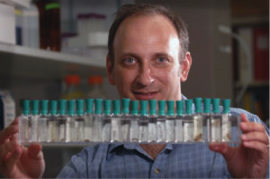Evolutionary perspectives in the trace metal physiology of aquatic insects
Metals contaminate freshwater ecosystems worldwide. Insects typically dominate the invertebrate species pool in most freshwater ecosystems, and are focused upon
Speakers
Content navigation
Description

Metals contaminate freshwater ecosystems worldwide. Insects typically dominate the invertebrate species pool in most freshwater ecosystems, and are focused upon by ecological monitoring programs. Yet the physiology of these important organisms remains poorly studied.
One often overlooked aspect of aquatic insect biology is the fact that insects are secondarily aquatic, with numerous invasions of aquatic habitats by several groups over evolutionary history. The transition from terrestrial life to aquatic life required solving physiological problems associated with respiration and osmoregulation. Different lineages exhibit different solutions to these problems, resulting in species groups with different physiologies that directly affect trace metal bioaccumulation.
In this seminar, I will present an overview of how our research group uses isotopic tracers to explore trace metal bioaccumulation and trophic transfer, the development of life cycle tests in a lab-reared mayfly, and our use of comparative/phylogenetic methods to explore patterns of metal bioaccumulation.
Location
Building 12, Level B, Room 2. University of Canberra
